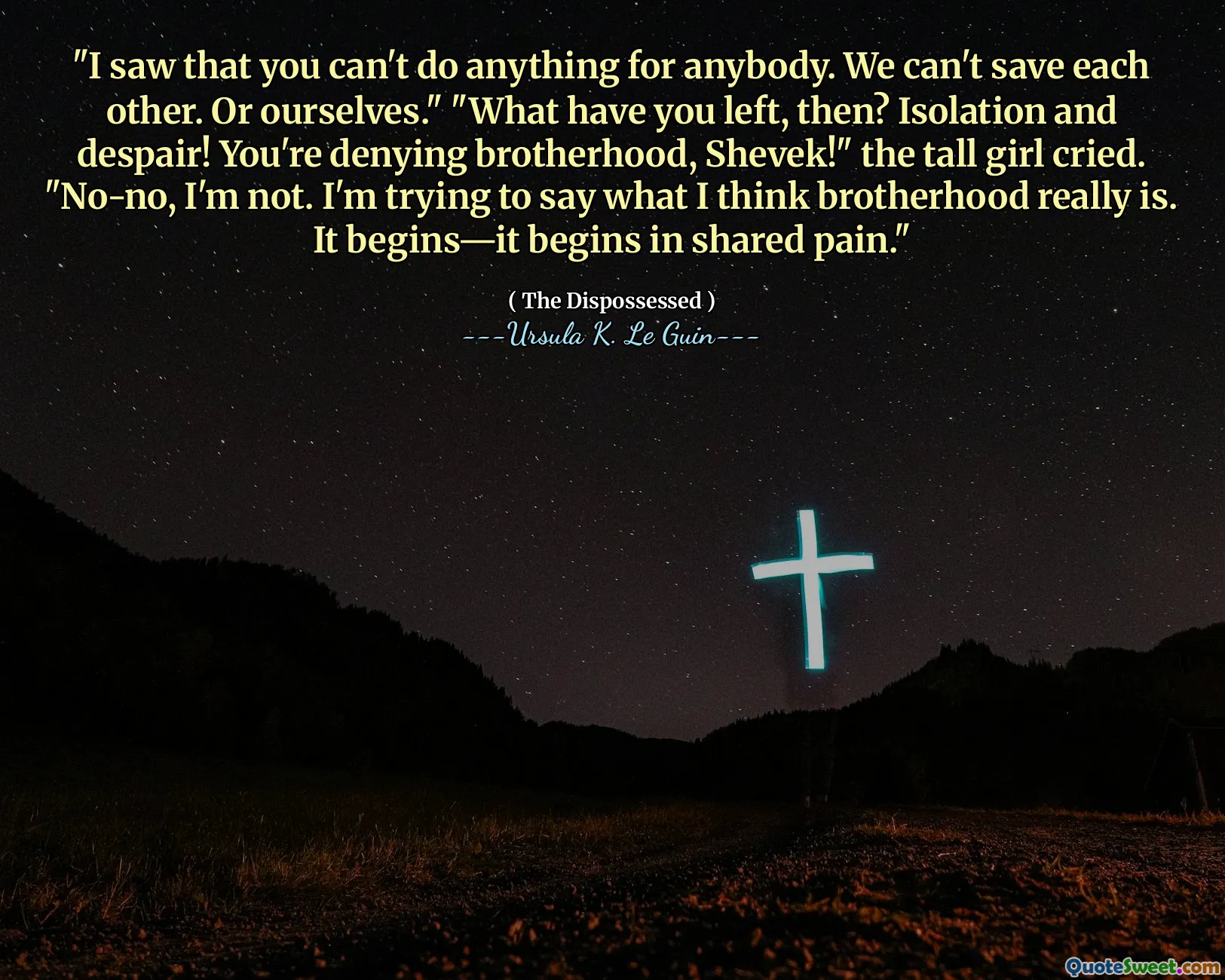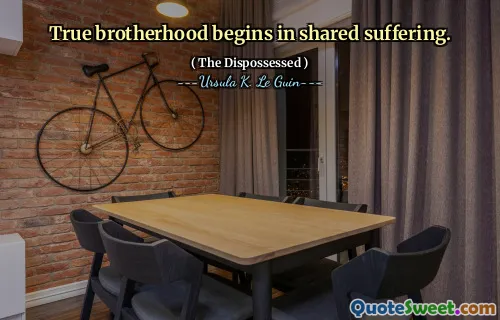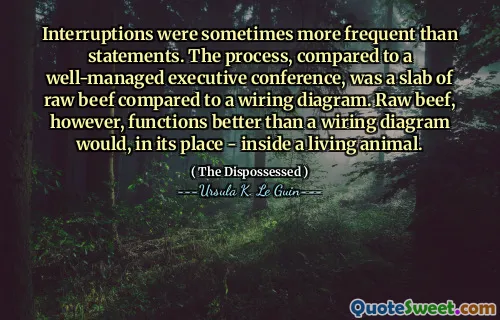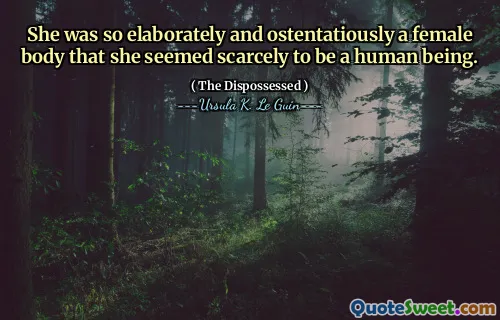
"I saw that you can't do anything for anybody. We can't save each other. Or ourselves." "What have you left, then? Isolation and despair! You're denying brotherhood, Shevek!" the tall girl cried. "No-no, I'm not. I'm trying to say what I think brotherhood really is. It begins—it begins in shared pain."
This excerpt from Ursula K. Le Guin’s The Dispossessed eloquently grapples with the profound themes of human interconnectedness, suffering, and the essence of brotherhood. At first glance, the assertion that "you can't do anything for anybody" or "save each other or ourselves" seems bleak and somewhat nihilistic. It challenges the romanticized notion of heroism or salvation that individuals might hope to perform for one another. Yet, in doing so, it forces us to reconsider the foundation of human relationships, shifting from external rescue to shared experience.
The counterpoint presented—"What have you left, then? Isolation and despair!"—underscores a common fear: that if salvation or help isn’t possible in a traditional sense, what remains is loneliness and hopelessness. This tension between despair and connection is something many wrestle with in life, especially when confronting pain or hardship.
However, the true heart of the quote lies not in denying brotherhood but redefining it as beginning with "shared pain." This reframing recognizes pain as a unifying force that binds individuals deeply and authentically. Rather than a savior dynamic, brotherhood emerges as a mutual understanding and solidarity forged through experiencing vulnerability and suffering together. It suggests that community and connection are not about heroic acts or grand gestures, but about empathetic presence and the acknowledgment of common struggles.
In a broader sense, this resonates with real-world social and emotional dynamics where collective understanding and compassion are born from recognizing shared difficulties. It challenges readers to embrace vulnerability as a powerful and binding human experience that can serve as the foundation for true solidarity. Ursula K. Le Guin’s insight invites reflection on how empathy, borne from shared pain, can forge meaningful human relationships amid the complexities of existence.









